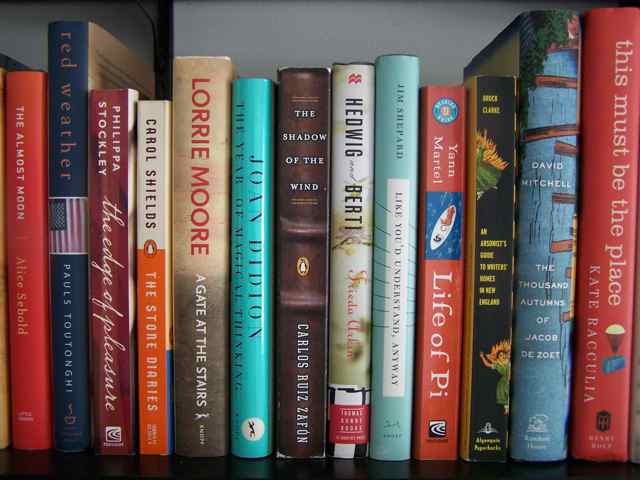
“Twenty years, Lily guessed, the garden had slept there without any endeavor applied beyond scratchings. There were daffodils gone riotous, ivy on the rampage. Stone planters sat mossed; on its side, home to a toad. A totter of willow panels – evidence to more recent efforts – lay under a tarpaulin in reasonable shape. Crampbark grew tall to wall height in the right-hand corner. Massed lavender had gone twiggy, with the rock roses. Euphorbia splattered its acid unchecked. Work to do, thought Lily, but oh what fruits to bear.”
When Lily’s nomadic instinct leads her to drive her van (her home, actually) up a steep driveway off a narrow lane to the rundown Motthoe mansion and gardens, she finds Harry. He is trying to build a birdhouse – the latest in his efforts to stave off the inevitable decline and (literal) rot of the property that he inherited responsibility for (the burden of?) less than a year before.
Lingering memories of happy times as a child and a very deep, very English, sense of responsibility to the few locals still employed on the property, keep Harry from selling up and moving on. While Lily, almost exactly the opposite, is always moving on – fixing up messy gardens until the owners can care for them themselves, and driving off again to find the next garden to love temporarily.
So Lily meets Harry and they fall in love? Not quite. Harry does fall under Lily’s spell right away (Everyone does.) on account of her ethereal beauty, expertise on all things garden, and captivating air of utter independence. But Harry’s a romantic, a dreamer, always falling in and out of love. Never with Irene, though – competent, loyal, unrequited-in-love Irene –as she works on Harry’s latest business idea by day, and is tied up with caring for her querulous, maybe-not-all-that-sick mother in the village, the rest of the time. Irene is immediately jealous.
But Lily has a way about her, though. Seemingly without trying, she draws out shy people, cheers up sad ones, soothes the overwrought. Before long, Irene and Lily are sharing cups of tea in Lily’s little cozy cottage near the gardens.
And. before long, it’s not just Irene, and it’s not just the gardens shaping up and becoming productive. The disparate lives of the people living or working on the estate start to come together. But Harry, despite his cautious optimism, is worried. He knows Lily doesn’t stay anywhere long. Plus, there’s something in her past – something troubling – under those still waters of hers.
If you, like me, enjoy novels with quirky (usually vaguely dissatisfied) characters struggling alone with their problems before they eventually connect, Lily the Tiller is for you. Think Rachel Joyce, Gill Hornby, Phaedra Patrick, Felicity Hayes McCoy, Frederick Backman Katarina Bivald, etc.
Lily the Tiller is a feel-good story that with an edge to it like a good pair of garden shears – It never gets too sweetly sentimental. (Are English garden shears sharper than American ones? Quite possibly?)
But you don’t have to love gardening to love Lily the Tiller. Reading it, you can enjoy that comforting feeling of digging your hands into rich soil to see what will grow, without even getting your hands dirty.
Deborah McKinlay is the author of two previous novels, The View from Here and That Part Was True, which I reviewed here.
Disclaimer: I received a free review copy of Lily the Tiller from the publisher.


this sounds like a comforting sort of book! i’ve never heard of any of those writers. i guess they are american?
Actually, I don’t think any of them are American! They all write fiction, though, and you may read more nonfiction?
They all write fiction, though, and you may read more nonfiction?